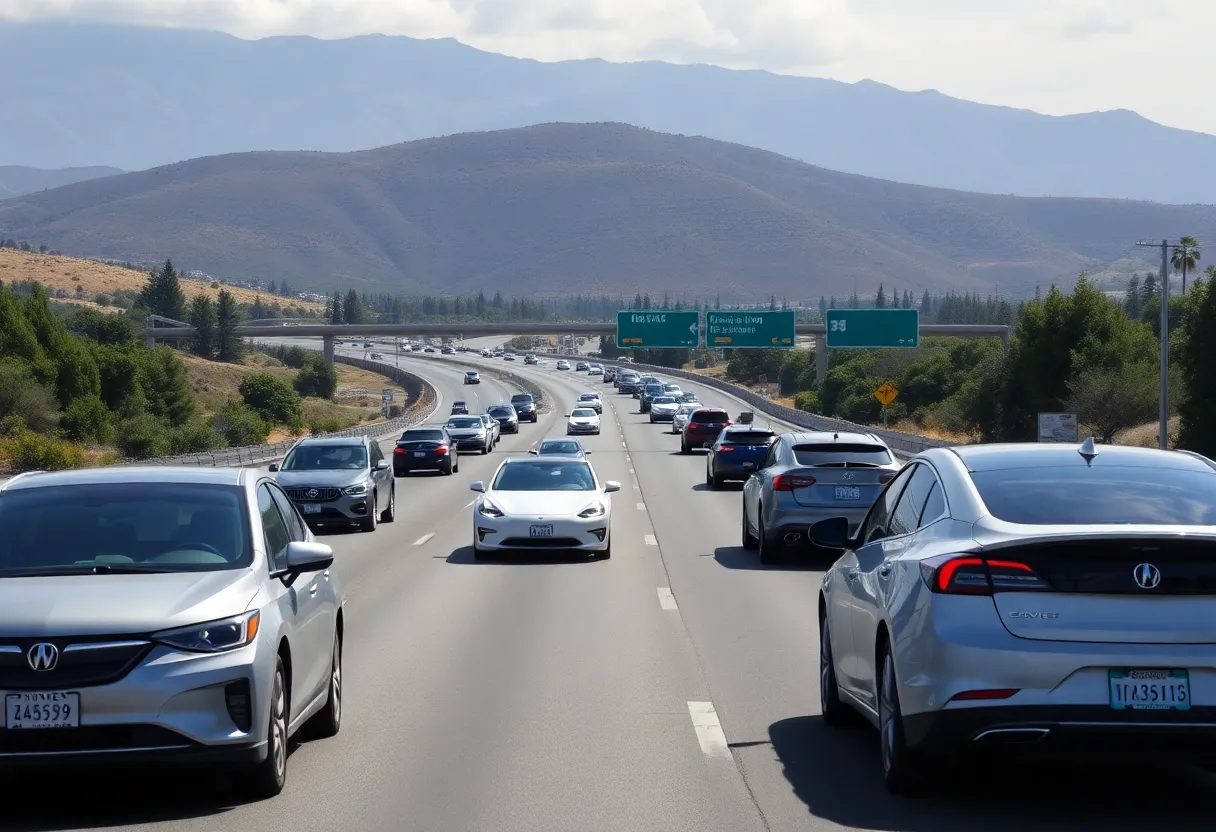News Summary
The U.S. Senate voted 51-44 to revoke three waivers that allowed California to enforce stricter vehicle emissions standards than federal regulations. The decision, which sparked widespread legal challenges and environmental debates, underscores California’s ongoing battle for authority in setting air quality standards. Critics argue this move threatens environmental progress and could lead to broader implications for state regulations across the country.
California – The U.S. Senate voted 51-44 on May 22, 2025, to revoke three vehicle emissions waivers that allowed California to implement stricter air quality standards than federally mandated regulations. The vote has sparked legal challenges and heightened environmental debates, as it undermines California’s authority under the Clean Air Act.
Among the senators supporting the revocation was Democratic Senator Elissa Slotkin of Michigan, who joined Republicans in a move that Senate Minority Leader Chuck Schumer described as the “nuclear option.” The revoked waivers specifically targeted driving down tailpipe emissions from medium and heavy-duty vehicles and smog pollution from trucks. Additionally, the third waiver, known as California’s “EV mandate,” aimed to phase out gas-powered vehicles and mandate that all new vehicle sales in the state be zero emissions by 2035, with the implementation beginning in 2026.
The waivers were initially granted by the Biden administration’s Environmental Protection Agency (EPA) in 2024. However, Republicans assert that the Congressional Review Act allows Congress to overturn federal agency rules with a simple majority vote, a claim that has met skepticism from government watchdog organizations. The Government Accountability Office and the Senate parliamentarian clarified that the waivers do not equate to rules eligible for reversal under the Congressional Review Act.
Critics, including Senate Democrats, argue that the recent vote could set a dangerous precedent, potentially bypassing the filibuster and overruling established parliamentary procedures. The Senate Majority Leader John Thune has indicated that the EPA viewed the waivers as rules submitted to Congress for consideration.
Environmental groups have reacted negatively to the Senate’s decision, asserting that it jeopardizes California’s effort to reduce pollution. The California Air Resources Board (CARB), which requested the waivers, highlighted their success in achieving a 99% reduction in vehicle pollution since 1970, helped by over 100 similar waivers. Former CARB Chair Mary Nichols noted that California is likely to sue the federal government if the waivers are rescinded. Following the Senate’s decision, California Governor Gavin Newsom announced plans for legal action, claiming that the revocation of the waivers was illegal and a breach of established legal norms.
The implications of this decision extend beyond California; 16 other states and the District of Columbia have adopted California’s vehicle standards. The auto industry has largely supported the revocation, citing concerns that the state’s stringent emissions rules could threaten jobs and economic stability, particularly in sectors reliant on internal combustion engines.
Environmental advocates have voiced concerns regarding the use of the Congressional Review Act to invalidate the waivers, fearing it may pave the way for more easy nullifications of executive actions in the future. This Senate decision reflects a partisan divide where Republicans push back against what they perceive as aggressive climate policies. They argue that these policies threaten consumer choice and the auto manufacturing industry. In contrast, past Republican leaders, including Nixon and Reagan, signed significant environmental legislation, which some interpret as a notable ideological shift for the party.
The Congressional Review Act was originally designed to enable lawmakers to counteract federal rules that emerged at the end of previous administrations. However, the appropriateness of its application in this instance is contested among Democratic lawmakers. As a result, there may be bipartisan repercussions from the Senate vote, with Democrats cautioning that this could set a precedent for future retaliatory actions when they regain power.
Deeper Dive: News & Info About This Topic
- The Guardian: Republicans move to revoke California EPA waivers
- CBS News: Senate GOP set to revoke California’s car emissions standards
- Los Angeles Times: Senate votes to overturn California’s gas-only car ban
- Road & Track: Senate Republicans move against California emissions rules
- AP News: Senate vote implications for California’s electric vehicle regulations
- Wikipedia: Clean Air Act
- Google Search: California vehicle emissions waivers
- Google Scholar: California car emissions standards
- Encyclopedia Britannica: Congressional Review Act
- Google News: California environmental policy

Author: STAFF HERE CORONADO
The Coronado Staff Writer represents the experienced team at HERECoronado.com, your go-to source for actionable local news and information in Coronado, San Diego County, and beyond. Specializing in "news you can use," we cover essential topics like product reviews for personal and business needs, local business directories, politics, real estate trends, neighborhood insights, and state news affecting the area—with deep expertise drawn from years of dedicated reporting and strong community input, including local press releases and business updates. We deliver top reporting on high-value events such as the Coronado Island Film Festival, productions at Lamb’s Players Theatre, community workshops at John D. Spreckels Center, and iconic celebrations at Hotel del Coronado. Our coverage extends to key organizations like the Coronado Chamber of Commerce and Visit Coronado, plus leading businesses in hospitality, dining, and tourism that drive the local economy. As part of the broader HERE network, including HERESanDiego.com, HEREHuntingtonBeach.com, HERELongBeach.com, and HERELosAngeles.com, we provide comprehensive, credible insights into Southern California's dynamic landscape.


